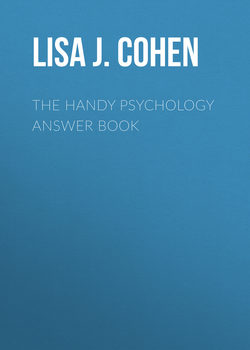Читать книгу The Handy Psychology Answer Book - Lisa J. Cohen - Страница 27
На сайте Литреса книга снята с продажи.
Does life have a purpose?
ОглавлениеAristotle believed that everything on Earth has a purpose, a telos. The acorn is intended to grow into an oak, a knife is intended to cut, a baker is intended to bake. As human beings are the only animals that reason, it is our telos to reason; it is our purpose. If we live according to our purpose, we will be living virtuously and will consequently be happy.
There are two types of telos: intrinsic telos and extrinsic telos. Intrinsic telos suggests that the aim of the organism is inherent in its nature, an acorn is innately programmed to grow into a tree. Extrinsic telos refers to a purpose imposed by an external force, such as a deity.
Not all modern views hold that life has a purpose, however. In the Darwinian view of natural selection, genetic variations happen by chance and persist only if they turn out to be adaptive, if they promote the survival of the species. We reason not because it is our telos but because we happen to have evolved that way. Our capacity to reason helped our species to survive.
The teleological view is more consistent with other modern views, though. Abraham Maslow (1908–1970), a humanistic psychologist, believed that we are predisposed to strive for a state of self-actualization, in which our personality is fully flowered and we reach our full emotional potential. It is, in effect, our telos.
Sigmund Freud (1856-1939), as well, may have been influenced by teleology. He studied with Franz Brentano (1938-1917), who was a scholar of Aristotle.
